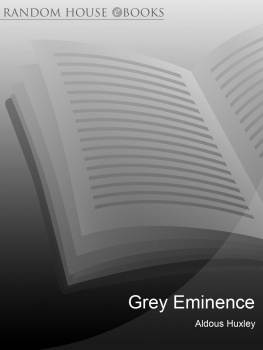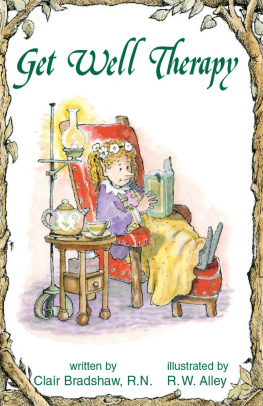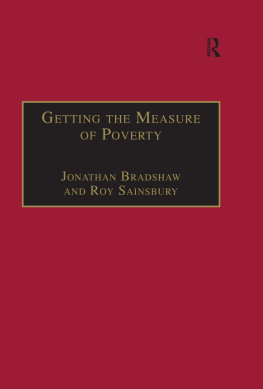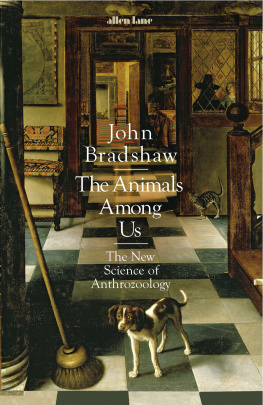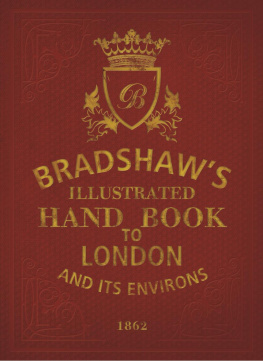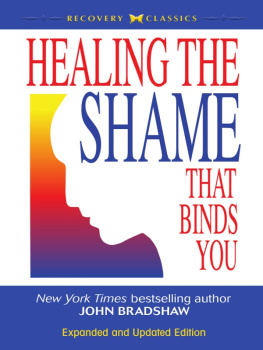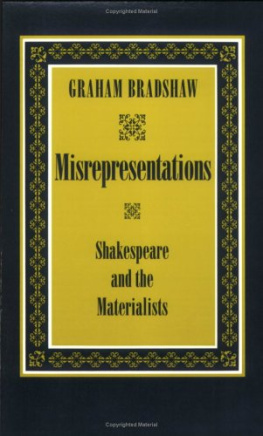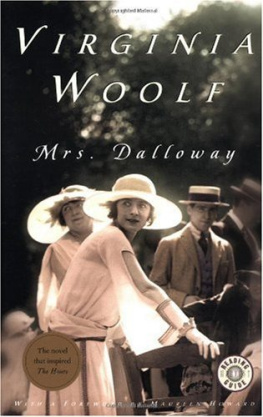Bradshaw David - Mrs Dalloway
Here you can read online Bradshaw David - Mrs Dalloway full text of the book (entire story) in english for free. Download pdf and epub, get meaning, cover and reviews about this ebook. City: Oxford, year: 2000, publisher: Oxford Paperbacks;Oxford University Press, genre: Art. Description of the work, (preface) as well as reviews are available. Best literature library LitArk.com created for fans of good reading and offers a wide selection of genres:
Romance novel
Science fiction
Adventure
Detective
Science
History
Home and family
Prose
Art
Politics
Computer
Non-fiction
Religion
Business
Children
Humor
Choose a favorite category and find really read worthwhile books. Enjoy immersion in the world of imagination, feel the emotions of the characters or learn something new for yourself, make an fascinating discovery.

- Book:Mrs Dalloway
- Author:
- Publisher:Oxford Paperbacks;Oxford University Press
- Genre:
- Year:2000
- City:Oxford
- Rating:4 / 5
- Favourites:Add to favourites
- Your mark:
- 80
- 1
- 2
- 3
- 4
- 5
Mrs Dalloway: summary, description and annotation
We offer to read an annotation, description, summary or preface (depends on what the author of the book "Mrs Dalloway" wrote himself). If you haven't found the necessary information about the book — write in the comments, we will try to find it.
Bradshaw David: author's other books
Who wrote Mrs Dalloway? Find out the surname, the name of the author of the book and a list of all author's works by series.
Mrs Dalloway — read online for free the complete book (whole text) full work
Below is the text of the book, divided by pages. System saving the place of the last page read, allows you to conveniently read the book "Mrs Dalloway" online for free, without having to search again every time where you left off. Put a bookmark, and you can go to the page where you finished reading at any time.
Font size:
Interval:
Bookmark:
OXFORD WORLDS CLASSICS
MRS DALLOWAY
DAVID BRADSHAW is Hawthornden Fellow in English Literature at Worcester College, Oxford, and a University Lecturer in English. He has edited The Hidden Huxley: Contempt and Compassion for the Masses, 19201936 (London: Faber and Faber, 1994) and has written articles on Bloomsbury, Conrad, T. S. Eliot, Huxley, Woolf, and Yeats. He has also edited Lawrences The White Peacock and Women in Love for Oxford Worlds Classics.
OXFORD WORLDS CLASSICS
For over 100 years Oxford Worlds Classics have brought readers closer to the worlds great literature. Now with over 700 titles from the 4,000-year-old myths of Mesopotamia to the twentieth centurys greatest novels the series makes available lesser-known as well as celebrated writing.
The pocket-sized hardbacks of the early years contained introductions by Virginia Woolf, T. S. Eliot, Graham Greene, and other literary figures which enriched the experience of reading. Today the series is recognized for its fine scholarship and reliability in texts that span world literature, drama and poetry, religion, philosophy, and politics. Each edition includes perceptive commentary and essential background information to meet the changing needs of readers.
Refer to the to navigate through the material in this Oxford Worlds Classics ebook. Use the asterisks (*) throughout the text to access the hyperlinked Explanatory Notes.
OXFORD WORLDS CLASSICS

VIRGINIA WOOLF

Edited with an Introduction and Notes by
DAVID BRADSHAW


Great Clarendon Street, Oxford OX2 6DP
Oxford University Press is a department of the University of Oxford.
It furthers the Universitys objective of excellence in research, scholarship,
and education by publishing worldwide in
Oxford New York
Auckland Bangkok Buenos Aires Cape Town Chennai
Dar es Salaam Delhi Hong Kong Istanbul Karachi Kolkata
Kuala Lumpur Madrid Melbourne Mexico City Mumbai Nairobi
So Paulo Shanghai Taipei Tokyo Toronto
Oxford is a registered trade mark of Oxford University Press
in the UK and in certain other countries
Published in the United States
by Oxford University Press Inc., New York
Biographical Preface Frank Kermode 1992
Introduction, Note on the Text, Select Bibliography, Chronology, and
Explanatory Notes David Bradshaw 2000
Text the Trustees of the Virginia Woolf estate
The moral rights of the author have been asserted
Database right Oxford University Press (maker)
First published as a Worlds Classics paperback 1992
Reissued as an Oxford Worlds Classics paperback 1998
New edition 2000
All rights reserved. No part of this publication may be reproduced, stored in a retrieval system, or transmitted, in any form or by any means, without the prior permission in writing of Oxford University Press, or as expressly permitted by law, or under terms agreed with the appropriate reprographics rights organizations. Enquiries concerning reproduction outside the scope of the above should be sent to the Rights Department, Oxford University Press, at the address above
You must not circulate this book in any other binding or cover
and you must impose this same condition on any acquirer
British Library Cataloguing in Publication Data
Data available
Library of Congress Cataloging in Publication Data
Data available
ISBN 0192839705
5 7 9 10 8 6 4
Typeset in Ehrhardt
by RefineCatch Limited, Bungay, Suffolk
Printed in Great Britain by
Clays Ltd., St Ives plc
VIRGINIA WOOLF was born Adeline Virginia Stephen on 25 January 1882 at 22 Hyde Park Gate, Kensington. Her father, Leslie Stephen, himself a widower, had married in 1878 Julia Jackson, widow of Herbert Duckworth. Between them they already had four children; a fifth, Vanessa, was born in 1879, a sixth, Thoby, in 1880. There followed Virginia and, in 1883, Adrian.
Both of the parents had strong family associations with literature. Leslie Stephen was the son of Sir James Stephen, a noted historian, and brother of Sir James Fitzjames Stephen, a distinguished lawyer and writer on law. His first wife was a daughter of Thackeray, his second had been an admired associate of the Pre-Raphaelites, and also, like her first husband, had aristocratic connections. Stephen himself is best remembered as the founding editor of the Dictionary of National Biography, and as an alpinist, but he was also a remarkable journalist, biographer, and historian of ideas; his History of English Thought in the Eighteenth Century (1876) is still of great value. No doubt our strongest idea of him derives from the character of Mr Ramsay in To the Lighthouse; for a less impressionistic portrait, which conveys a strong sense of his centrality in the intellectual life of the time, one can consult Nol Annans Leslie Stephen (revised edition, 1984).
Virginia had the free run of her fathers library, a better substitute for the public school and university education she was denied than most women of the time could aspire to; her brothers, of course, were sent to Clifton and Westminster. Her mother died in 1895, and in that year she had her first breakdown, possibly related in some way to the sexual molestation of which her half-brother George Duckworth is accused. By 1897 she was able to read again, and did so voraciously: Gracious, child, how you gobble, remarked her father, who, with a liberality and good sense at odds with the age in which they lived, allowed her to choose her reading freely. In other respects her relationship with her father was difficult; his deafness and melancholy, his excessive emotionalism, not helped by successive bereavements, all increased her nervousness.
Stephen fell ill in 1902 and died in 1904. Virginia suffered another breakdown, during which she heard the birds singing in Greek, a language in which she had acquired some competence. On her recovery she moved, with her brothers and sister, to a house in Gordon Square, Bloomsbury; there, and subsequently at several other nearby addresses, what eventually became famous as the Bloomsbury Group took shape.
Virginia had long considered herself a writer. It was in 1905 that she began to write for publication in the Times Literary Supplement. In her circle (more loosely drawn than is sometimes supposed) were many whose names are now half-forgotten, but some were or became famous: J. M. Keynes and E. M. Forster and Roger Fry; also Clive Bell, who married Vanessa, Lytton Strachey, who once proposed marriage to her, and Leonard Woolf. Despite much ill health in these years, she travelled a good deal, and had an interesting social life in London. She did a little adult-education teaching, worked for female suffrage, and shared the excitement of Roger Frys Post-Impressionist Exhibition in 1910. In 1912, after another bout of nervous illness, she married Leonard Woolf.
She was thirty, and had not yet published a book, though The Voyage Out was in preparation. It was accepted for publication by her half-brother Gerald Duckworth in 1913 (it appeared in 1915). She was often ill with depression and anorexia, and in 1913 attempted suicide. But after a bout of violent madness her health seemed to settle down, and in 1917 a printing press was installed at Hogarth House, Richmond, where she and her husband were living. The Hogarth Press, later an illustrious institution, but at first meant in part as therapy for Virginia, was now inaugurated. She began
Next pageFont size:
Interval:
Bookmark:
Similar books «Mrs Dalloway»
Look at similar books to Mrs Dalloway. We have selected literature similar in name and meaning in the hope of providing readers with more options to find new, interesting, not yet read works.
Discussion, reviews of the book Mrs Dalloway and just readers' own opinions. Leave your comments, write what you think about the work, its meaning or the main characters. Specify what exactly you liked and what you didn't like, and why you think so.

